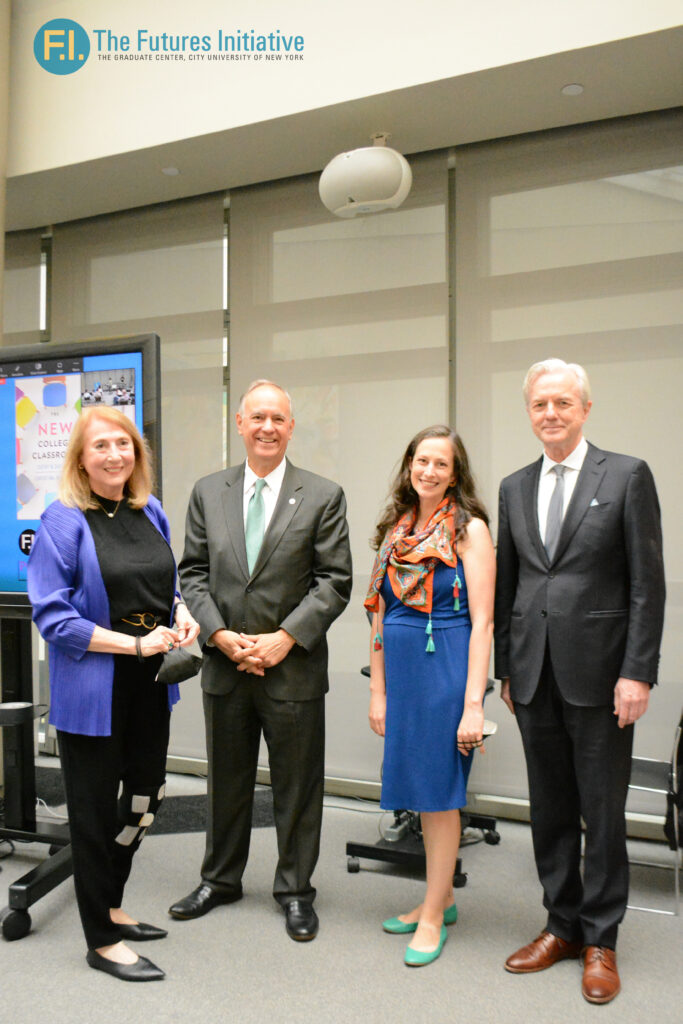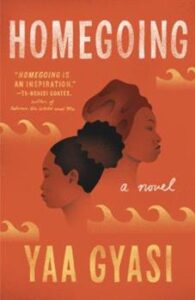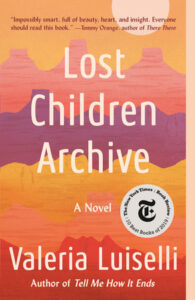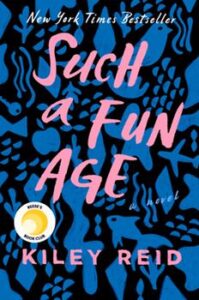This is the first of a two-part post, synthesizing our final faculty seminar, with our final cohort of faculty fellows. These seminars have been at the heart of the TLH program, as we have aspired to cultivate agents of change in the classroom and beyond. During our 18 seminar sessions over the past two years, we’ve also tried to practice what we preach by fully engaging all participants in the co-learning and teaching process. One of the easiest ways to do this is by using an inventory method to make sure everyone is heard. It’s also an especially generative process for coming up with ideas that others can draw on in their teaching. For part two, check out Showing Care in the Classroom.
We started the session by discussing the introduction to Tracie Morris’s Who Do With Words (pp. 11-23) in which Morris challenges us to think about approaching the canon through “what we, those of marginalized status, have always done when the barrage of the status quo asserts itself. We find a way shape shift cursed words, to make the onslaught of actions meant to harm, in some way meaningful, affirming, to us in another way. ” (p. 21).
Drawing on Morris’ idea of changing her relationship to harmful texts, faculty co-directors Matt Brim and Shelley Eversley, and Pedagogy co-leader, Khanh Le offered the prompt:
If an instructor is handed a syllabus and they can’t change it? What does one do?
Matt summarized Shelly and Khanh’s remarks, and encouraged everyone to start thinking and writing down their strategies for teaching canonical texts:
“Shelly transforms canonical texts by citing Black women and by referring to Black cultural expression. This is the politics of citation. Khanh redefines the terms being used: “What is standard? What is a canon?” And by choosing texts his students can connect to. Center students’ experience even with required texts.”
This modeled the exercise for everyone on the call and opened up space for dialogue through the chat, and in reading the responses out loud. Everyone shared both general strategies and specific examples of how they teach required readings (responses have been lightly edited to correct errors and provide clarity when needed):
“I am required to teach Shakespeare in my college composition class at Hunter College so I teach Taming of the Shrew and use it as a time for us to reflect on domestic violence and sexual harassment and assault on college campuses.” – Christina Katopodis
“When dealing with mainstream/canonical texts, I often put them in historical context to add color and inclusivity to the conversation. Or, I cite a lesser-known BIPOC contemporary text/author to ask how the mainstreamed author might engage the lesser-known/obscured author. Sometimes I teach a “canonical” text and point to the moments (however brief) that indicate the presence of Black people. Think about Medusa in Greek mythology: was she so stunning that men only metaphorically turned to stone? Were the snakes as hair, dreadlocks?” – Shelly Eversley
“I identify with Khan’s way of teaching a canonical text by relating it to a culture that speaks to students nowadays. This is actually the only way a canonical text can survive and be read, in my opinion. I teach Great Works of Literature, and I base my syllabus off of an anthology, but I am allowed liberties. For the part of my syllabus which is formed by classics (Voltaire, Rousseau, Wordsworth, Dickinson, Ibsen, Woolf) I always find that the students identify with the texts because of the universal and timeless dilemmas they raise. Sure, they may see Candide’s optimistic determinism as mere optimism, but then it’s my job to give them context, and they have no trouble differentiating their 21st-century experience of a text from the contemporary context of that text’s publication time. [in response to a later comment] My students sometimes ask why we read ‘depressing’ texts, and I tell them we can derive satisfaction from unpacking texts that have shaped our world in bad ways as well” – Manon Hakem-Lemaire
“I am lucky in that I get to select which texts I assign to students and I rarely (if ever?) choose from the canon. But I used to have to use an anthology, so I used assignments to create space for students to write back. Students have written an analysis of the anthology intro, thinking about bias and editorial choices. They’ve also written proposals for additions to the anthology or to an altogether new anthology.” – Meghan Gilbert
“For the final unit/assignment in my American Literature Survey course, I ask students to design their own courses and course reading lists choosing texts that “speak back to” or “reconstruct” the canon and some of the canonical works we’ve discussed together. They’ve designed courses centering Black Women Writers, LGBTQIA writers, immigrant writers, and nonstandardized Englishes—such cool projects!” – Melissa Dennihy
“I think about this question in terms of my ever- (and quickly-) evolving field of queer studies. Do I still have to teach Gender Trouble, a book that transformed the field? When do newer texts displace older, canonical ones? A hurdle here is that most of the great new texts refer to the older canonical ones. This is a question I struggle with, because getting the intellectual history in place is important. I try to honor the past without getting stuck there.” – Matt Brim
“One thing I do in my memoir class is to have the class generate a reading list as a group, so that they can share and recommend texts to each other that I may not even be aware of. This decenters me as the sole creator of the syllabus. It’s very fluid. We read contemporary work by writers from the communities the students come from, and don’t think about canons. We read Ly Tran because she was part of this TLH project. And Ocean Vuong.” – Emily Raboteau
“There is a certain regard for the text that makes its way to the syllabus. It’s the bible, canon, the text(s) that matter for this course. I think about a student, M, who composed her final project for my class in response to Chavez’s Decolonizing the Writer’s Workshop (a required text for my course). She wrote at length about her alienating experiences as an Southeast Asian woman of color in her other courses at our so called liberal, progressive, diverse urban college in the heart of Brooklyn. A point of inquiry was one Prof’s syllabus. The texts were included in her final project – all white men, all cis, all canon. She composed her rage in comic book strips – the scenes were animated and screenshots of texts and emails between her and this Prof found their way too. How do I make space for all of us, to try to “do” justice? Mostly by inviting in the rage, the anger, what bell hooks describes in her talk on Thich Nhat Hanh as the ‘compost for your garden.’ What is it that we don’t want? What is it that we resist? That’s what I hope finds its way to my course and syllabus.” – Natalie Nuzzo
“I teach a sculpture lesson where students use linear, planar and geometric objects to reimagine a chapter from Italo Calvino’s book Invisible Cities. Even though the book is centered around conversations between Marco Polo and Kublai Khan I ask students to think of the deeper meaning of the text and to use abstraction to suggest, rather than illustrate the meaning of the city described within. Once students have chosen a chapter that they want to recreate as a sculpture, they have to translate common materials (cardboard, wire, bamboo skewers, Styrofoam and plaster) into something meaningful to them. But the act of translation is more meaningful than just the materials they are using. It also refers to their reinterpretation of the text as well, and allows them to reimagine themselves within the cities they create.” – Roberto Visani
“1. Role playing with characters from a text but the students are allowed to make different situations and different outcomes. 2. Introducing modern-day and more relevant artistic interpretations of the text and 3. Give students power over the text with an assignment like, ‘If you were the publisher, how would you market this text; would you even publish it?'” – Laurie Lomask
“I assign a text that will challenge the canonical one and have students historically contextualize both of the texts and see them for the time in which they were produced. Then students pull out strands of conversations between them and discuss these viewpoints. So for instance, John Berger’s Ways of Seeing with Kenneth Clark’s Civilisation”. – Nina Hien
“I teach Library of Congress Subject Headings (LCSH), which are structured to reinforce whiteness, hetero masculinity, settler colonialism, and very clearly “other” women, queer folks, people of color, indigenous people…everyone who isn’t a straight white christian male in the US. Since most of my students don’t start with any knowledge of LCSH, I introduce it to them through the documentary film Change the Subject about a group of undocumented Latinx college students who organized to get the subject term ‘illegal aliens’ removed. So from the jump we’re talking about the power of people to organize and effect change.” – Sarah B Cohn
“So many good ideas here! I think this has already been alluded to, but one idea when teaching canonical texts (often in film survey classes) has been to pair w/ another non-canonical text that challenges or “responds” to text in some way, and opens up the opportunity to question the constructed nature of canons. E.g. pairing a week on classical Hollywood cinema with Julie Dash’s Illusions, Mulvey’s Visual Pleasure and with bell hooks’s Oppositional Gaze” – Elizabeth Alsop
“I’ve been thinking a lot about intellectual violence and the ways in which ‘bad’ ideas seem to persist. I think my approach to teaching difficult texts is informed by a sense that some ideas are inevitable and part of being a trained critical thinker is knowing how to both encounter those ideas on their own terms and not be afraid to speak out against what feels like inherited wisdom. In the literature classroom, racism is easy and frankly trendy to call out, everything else seems more open to debate. Using difficult texts as a way to force a conversation about complex ideas feels like a way to both foreground the ‘canon’ while also unpacking it.” – James Harris
“If it’s a western canonical text, I’m looking for a source that is BIPOC that demonstrates for students that similar thinking for students to locate their experiences, observations and thoughts in it. I try to create an atmosphere through questions and reflection for students and myself to see how such a text is myopic in choice to ignore experiences and identities familiar to me/them. If it’s a western text talking about language then I’m using texts like Rachel Kaadzi Ghansah, Amy Tan, James Baldwin, Natalie Diaz, John Keene, bell hooks, June Jordan, Doreen St. Felix and Toni Morrison to demonstrate that language and rigor or thought about power and language exists too. The hope is that they see the lineage of thought and are empowered by it rather than thinking these terms and ideas are dictated, ossified, or rarified.” – Syreeta McFadden
We hope you’ll be inspired by some of these ideas to make required readings relevant to students by connecting them to contemporary issues and other points of view. Thank you to all of our faculty fellows for bringing so much to our seminars!
Read part 2, Showing Care in the Classroom.











